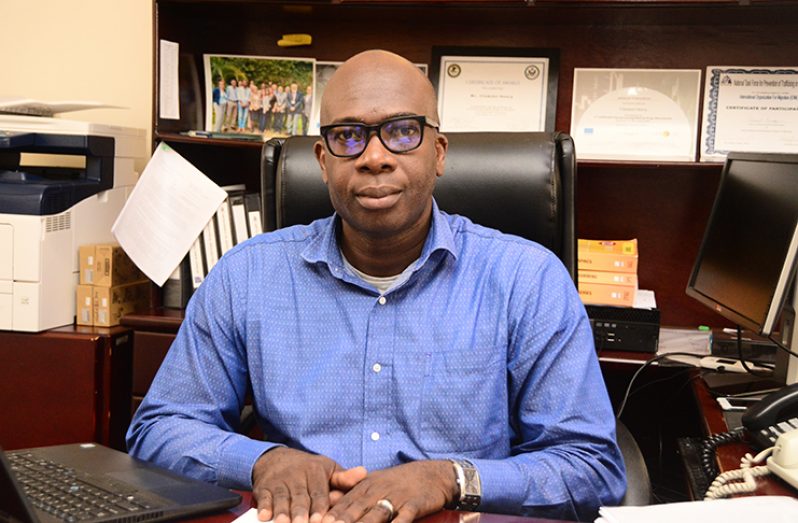IN its quest to reduce violence and unemployment among young people, the government, through the Citizen Security Strengthening Programme (CSSP), has been training hundreds of young people in five regions of the country.
Already, 294 persons have been trained under the Inter-American Development Bank (IDB)-funded programme, while 555 young adults are currently receiving formal training in technical and vocational institutions found within their districts.

Come September, the final batch of 380 persons will commence training at tertiary institutions in the fields of business, engineering, welding and fabrication, Information Communication Technology (ICT) and entrepreneurship, among other areas.
Citizen Security Strengthening Programme (CSSP) Project Manager, Dr. Clement Henry, said the training forms part of the Community Crime and Violence Prevention component of the CSSP, which is divided into a three components.
He said the Community Crime and Violence Prevention component, which places tremendous emphasis on youth development and behavioural change, started in August 2016, but training commenced in 2017. Dr. Henry said training is on-going in technical institutions in Regions Three, Four, Five, Six and 10. Singling out Region Six, the project manager said the programme has surpassed its quota for that region as a result of an increasing interest from the people there in advancing their education. The programme is also well received in Region Four.
Major emphasis, the project manager said, is being placed on entrepreneurship. Currently, 30 young adults are enrolled in entrepreneurship programme. In total, approximately 200 of them will be trained to become entrepreneurs. Once their business concepts are approved, these budding entrepreneurs will be provided with small grants and their businesses will be monitored by coaches.
It was noted that soon, job readiness and placement services will be offered to the participants of the programme.
“This programme has not started as yet but we want to help them to cultivate the right type of attitude for the workplace. Some of these young people have been raised in unstructured environments and even those who have been raised in a structured environment, the hope is that we can raise the standard of professionalism among them, so when they go into the workplace, they will be model employees,” he explained.
He said through CSSP, partnerships will be created with non-governmental organisations (NGOs), the private sector and the government to ensure that the certified trainees are provided with job opportunities.

LIFE-CHANGING
The programme’s mid-term evaluation is currently ongoing; however, according to Dr. Henry, based on qualitative feedback from both parents and students, the initiative is life-changing.
In addition to the academic and skills training, the programme focuses on domestic violence prevention, interpersonal violence prevention, conflict resolution, and parenting.
“We believe that by combining these four areas, it is likely that we can address crime and violence at the root – that is, in the household, at the individual level and at the community level,” he explained.
He said the training is intended to build their resilience and make them well-rounded individuals. A mentorship programme is also in place under the umbrella initiative.
“Our hope is to build psychosocial resilience among these young people. Many of them are coming from vulnerable homes, vulnerable communities and our hope is to introduce them to some of the key life skills issues, help them to talk on these issues, help them to develop a positive prospective on these issues, and in the end, transform them into a whole new person – again that would be model citizens,” Dr. Henry explained.
Under this aspect of the programme, attention is placed on anger management, interpersonal violence prevention and substance abuse, among other critical areas. To make an impact, one-on-one counselling is offered and home visits are conducted in addition to group training.
“If we intervene at these three separate points, we can help overall in transforming those young people… we have been seeing transformation…. For us, the training that we give them, the mentoring that we give them, and the job readiness preparation that we give them, we hope that this is what is going to transform our young people so they engage not in activities of delinquency, activities relating to crime and violence, activities relating to substance abuse, but become better citizens, model citizens, citizens who are willing to be engaged in positive activities and interpersonal development,” Dr. Henry said.
The entire CSSP initiative, which includes two other components – strengthening the Guyana Prison Service rehabilitation and social reintegration services, and strengthening the Guyana Police Force crime prevention and investigation capacity – totals US$15M. Of the US$15M, the Community Crime and Violence Prevention component has been allocated US4.8M.




.png)









